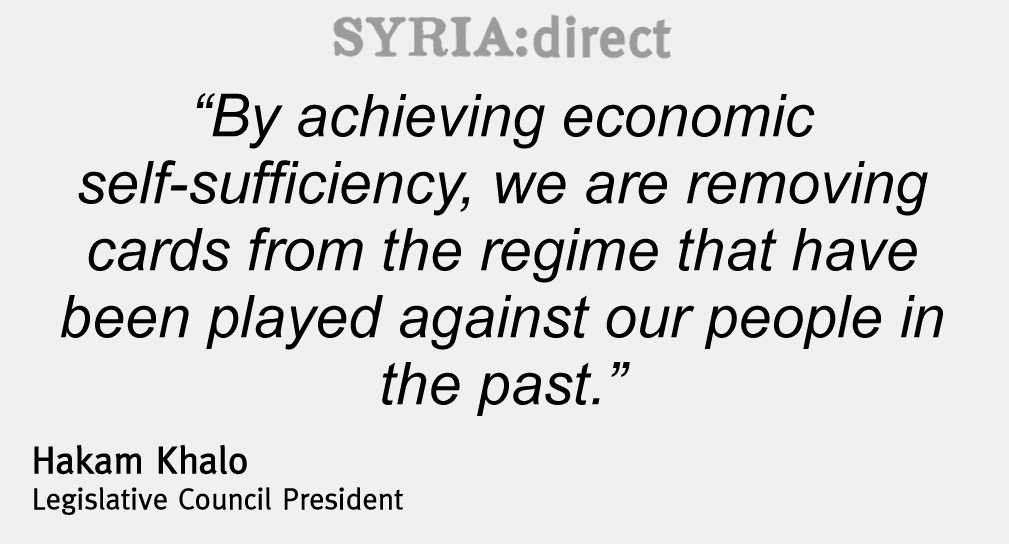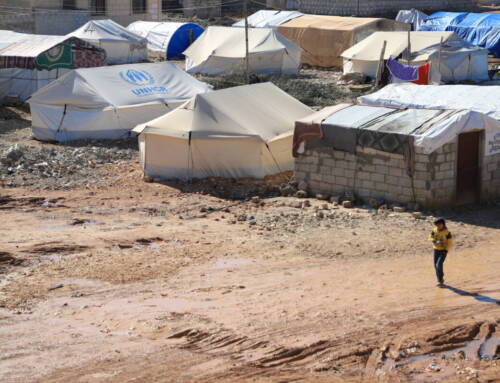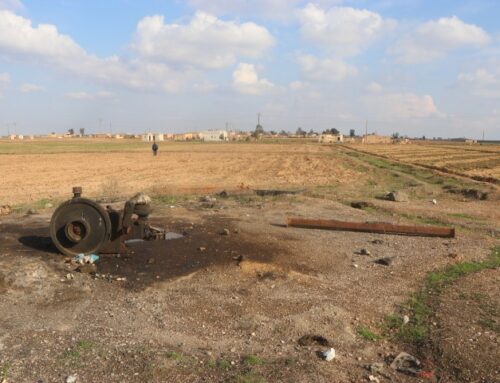A Central Bank for Rojava: A sign of prudence or posturing?
The PYD-led Legislative Council of Jazirah canton announced earlier this […]
28 March 2016
The PYD-led Legislative Council of Jazirah canton announced earlier this month that it would found a Central Bank responsible for guiding economic policy.
Legislators hope the Central Bank will foster “economic stability” and provide “confidence to investors,” Legislative Council President Hakam Khalo tells Syria Direct’s Muhammad Abdulssattar Ibrahim.
But activists opposed to PYD-led rule in the north say the announcement of a central bank is more about politics than economics.
The move to establish a central bank in Rojava “is part and parcel to the federalist project,” Aymen al-Khalil, a political activist opposed to the PYD living in Europe tells Syria Direct. It is “unclear” how the bank will be established “or on what basis its policies will be determined,” he said.
The Central Bank, when operational, will safeguard the Kurds in particular from the type of economic marginalization they experienced in the past, says Khalo.
The Syrian state “was unjust in the distribution of resources in the past and marginalized the Kurdish regions,” says the legislator.
“By achieving economic self-sufficiency we are removing cards from the regime that have been played against our people in the past.”
Q: What does the Legislative Council hope to accomplish by establishing a central bank in Jazirah canton?
Given that we now control large parts of Syria, our goal is to ensure the economic stability of these areas. Institutions [such as a central bank] give confidence to investors and facilitate investment both financially and administratively. And these investments are a necessity because the infrastructure of the canton was underdeveloped by the regime, which implemented policies of impoverishment and resource diversion.
[Ed.: In the 1962 census the Syrian government stripped 120,000 Kurds of their citizenship, rendering them unable to vote or own property or businesses—a condition that persists today for most of their descendants. Later, during the rule of Hafez al-Assad the Syrian state displaced Kurds from resource-rich areas and diverted agricultural and petrochemical resources from Jazirah Canton to other provinces.]
Q: In the announcement regarding the establishment of the Central Bank, the Legislative Council said that the aim was to support the local economy and achieve self-sufficiency. What do you mean by self-sufficiency?
We are currently living under siege—economically and militarily. All of the canton’s border crossings with Turkey are closed. Some, such as at Tel Abyad, were open when the Islamic State was in control. The same goes for the roads leading to western Syria. The Simalka crossing with Iraqi Kurdistan opens and closes depending on political agendas. We must develop the basis for economic self-sufficiency in order to shore up our basic needs.
[Ed.: Located on the Tigris river, Simalka is the sole border crossing connecting Hasakah province with Iraqi Kurdistan. On the Syrian side, the PYD-affiliated Asayish police control the crossing while Kurdish Peshmerga fighters operate the Iraqi side. Both the Iraqi and Syrian Kurdish-led governments have at times closed the border crossing to travelers—most recently the Kurdish National Coalition government of Iraqi Kurdistan closed the border for several days on March 16.]Q: Is this move toward economic self-sufficiency a reflection of the current political situation (i.e., the ongoing Geneva talks and the recent announcement of federalism in Rojava)?
When we announced the Social Contract, we said that we are a part of Syria.
[Ed.: In January 2014, the Kurdish Self-Administration published a constitution-like document known as the “Social Contract” with the stated goal of promoting “mutual understanding and coexistence.”]At the same time, we have to see to the needs of our citizens given that the government in Damascus is unable to play this role at this time. Also, this same government was unjust in the distribution of resources in the past and marginalized the Kurdish regions. By achieving economic self-sufficiency, we are removing cards from the regime that have been played against our people in the past.







